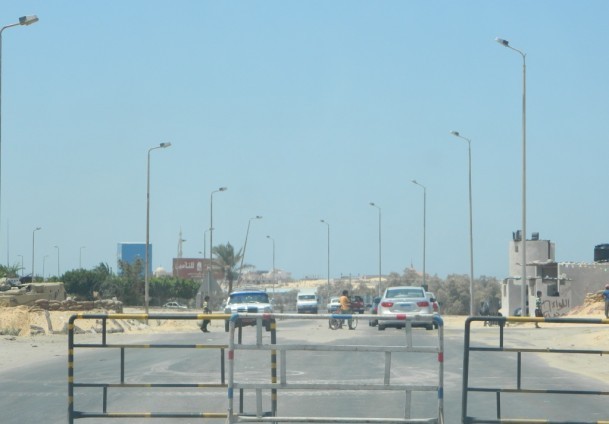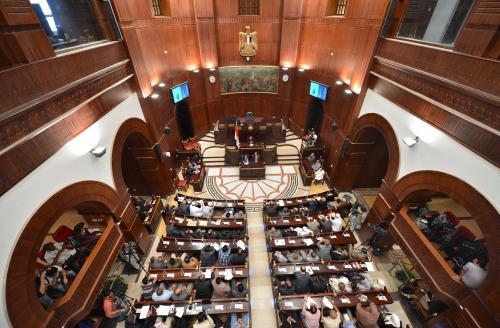Egypt’s prime minister, Mostafa Madbouly, on Tuesday, witnessed the signing of a shareholders’ agreement to establish two new companies for industrial projects focused on recycling waste into polyester fibre and industrial felt, involving foreign investment.
The two projects, located at the Misr Company for Artificial Silk and Polyester Fibers site in Kafr El Dawar, Beheira Governorate, represent a total investment of EGP 1.7bn. The site is affiliated with the Holding Company for Cotton, Spinning, Weaving and Clothes, which falls under the Ministry of Public Business Sector.
The agreement was signed by Ahmed Hassan Saber, executive managing director of Misr Company for Artificial Silk and Polyester Fibers; Haider Nouri Derjal, a shareholder and authorised representative of UAE-based Othman International; and Wael Zakaria Abdel Maabood Farag, also a shareholder. Minister of Public Business Sector Mohamed Shimi attended the signing ceremony.
According to a government statement, the projects aim to recycle plastic waste and fabric scraps using European technology. The resulting materials will be supplied to local and international industries, contributing to reduced carbon emissions and supporting the green economy.
Prime Minister Madbouly stated the projects represent a “strong addition to the state’s efforts in promoting the transition towards a green economy.” He affirmed government support for initiatives that create jobs, cut emissions, and meet sustainable development goals, adding that “exploiting industrial and agricultural waste economically has become a basic pillar in Egypt’s Vision 2030.” Madbouly noted such projects enhance the competitiveness of Egyptian products globally and open export opportunities.
Minister Mohamed Shimi said the establishment of these projects aligns with the ministry’s plan “to maximize the exploitation of subsidiary companies’ assets… establishing productive projects with high economic and environmental returns.” He added that the projects would significantly reduce import dependency and position Kafr El Dawar as a regional hub for these specific industries, benefiting from proximity to ports and industrial zones. Shimi encouraged further investment in green industries.
The first project, representing an investment of EGP 1.1bn and establishing a company with EGP 1bn in capital, will occupy 25,000 square metres. It aims to produce 30,000 tonnes annually of polyester fibre derived from recycled plastic waste. This fibre has applications in clothing, mattresses, pillows, thermal insulation, road lining, carpets, and vehicle upholstery. The project targets reducing the domestic supply-demand gap and exporting 80% of its output, with projected annual sales of around EGP 800m.
The second project focuses on recycling fabric waste into industrial felt. It involves an investment of EGP 600m, establishing a company with EGP 400m in capital, and will cover 20,000 square metres. With a similar planned output of 30,000 tonnes annually, the felt produced is used in aircraft, trains, metros, vehicles, furniture, and thermal insulation. This project aims to substantially decrease imports and export 52% of its production, generating estimated annual sales of EGP 230m.
The implementation of these two projects is expected to contribute to transforming Kafr El Dawar into a regional industrial centre for recycling and alternative raw material production. This supports Egypt’s national strategy towards expanding high-value-added industries, protecting the environment, and boosting exports to new global markets.




